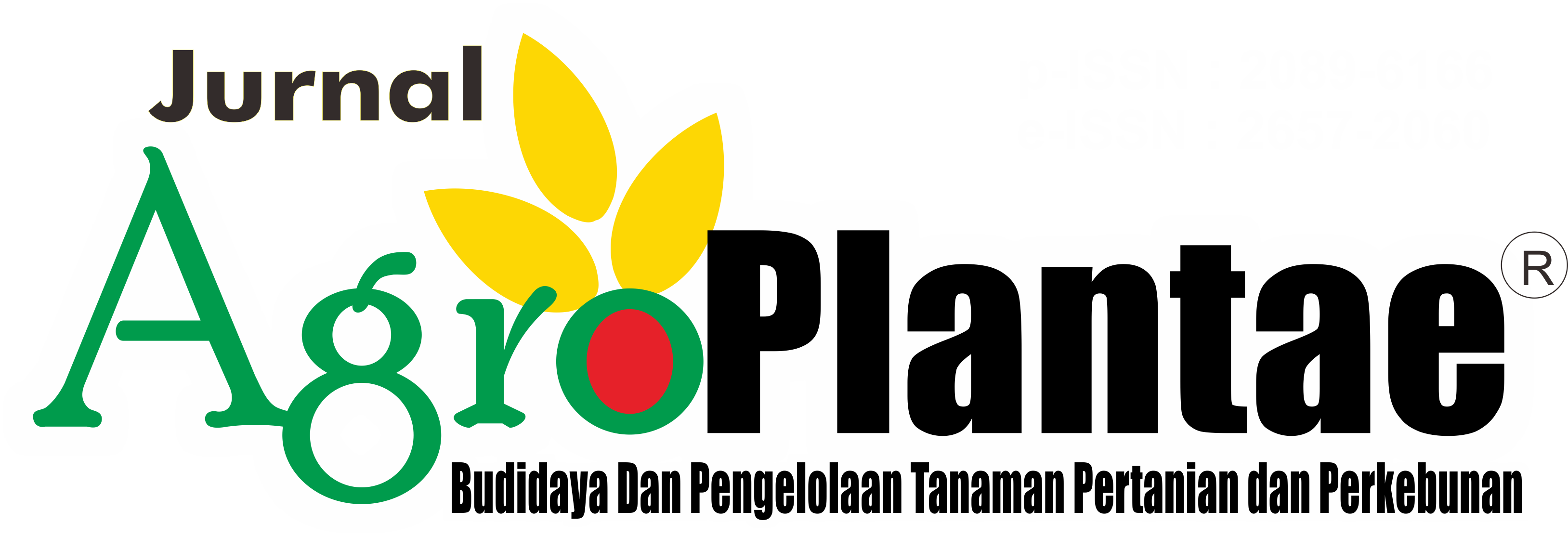PERTUMBUHAN VEGETATIF 9 KLON TANAMAN TEBU (Saccharum officinarum L.) KEPRASAN SATU DENGAN PEMBERIAN PUPUK ORGANIK CAIR DI GRESIK
Abstract
Sugar production in Indonesia tends to decline in 2015-2019 due to several factors, including declining seed quality and the use of inorganic fertilizers that are not in the recommended dosage. The purpose of this study was to determine the interaction that occurred between 9 sugarcane clones with the application of bio-slurrry liquid organic fertilizer on the vegetative growth of first ratoon cane, as well as the heritability and genetic progress of the character of 9 sugarcane clones. This study uses a split plot design with two factors, namely clones (K) which consists of 9 levels of treatment. The second factor is the application of liquid organic fertilizer (P) which consists of 2 levels of treatment, each treatment combination was carried out in three replications. Analysis of the data using Anova F test 5% if there is a significant difference followed by DMRT 5% test, correlation test, heritability test, and the value of genetic progress. The results showed that there was an interaction between 9 sugarcane clones and the application of bio-slurrry fertilizer on vegetative growth, namely the increase in the number of segments at the age of 32 weeks with the highest average value of 3,33 in Clone SB Green and 15 ml bio-slurry/clump and the highest average was 3,83 in Clone SB32 and bio-slurry 15 ml/clump at the age of 34 weeks. The value of genetic progress in the high category was seen in the characters of stem height (20,55%). So, these character can be effectively inherited from their parents








